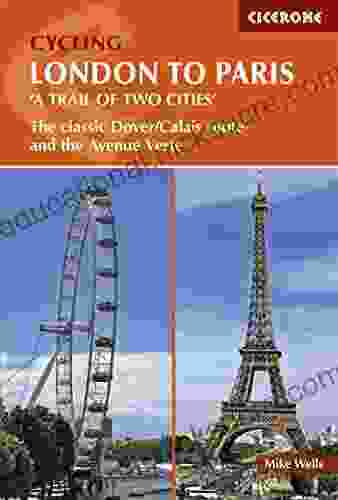Visions of How Science Will Revolutionize the 21st Century

The 21st century has witnessed unprecedented scientific and technological advancements that have the potential to transform our lives, society, and the planet. From groundbreaking discoveries in medicine, energy, and materials science to the rise of artificial intelligence and the expansion of space exploration, science is shaping the future in profound ways. This article explores some of the most transformative visions of how science will revolutionize the 21st century, highlighting cutting-edge developments and their potential impact.
1. Personalized Medicine: Tailoring Treatments to Individuals
Advances in genomics, bioinformatics, and nanotechnology are paving the way for personalized medicine, where medical treatments are tailored to the unique genetic and molecular profile of each individual. This approach holds immense promise for improving treatment outcomes, reducing side effects, and preventing diseases altogether. By leveraging information about an individual's genetic makeup, lifestyle, and environmental exposures, scientists and healthcare professionals can develop more effective and targeted therapies, leading to a more personalized and precise approach to healthcare.
4.7 out of 5
| Language | : | English |
| File size | : | 5202 KB |
| Text-to-Speech | : | Enabled |
| Screen Reader | : | Supported |
| Enhanced typesetting | : | Enabled |
| Word Wise | : | Enabled |
| Print length | : | 418 pages |
2. Renewable Energy: Powering the Future
The urgent need to address climate change has accelerated the development and adoption of renewable energy sources, such as solar, wind, and geothermal energy. Breakthroughs in materials science and engineering are yielding more efficient solar panels, next-generation wind turbines, and innovative energy storage technologies. These advancements are driving down the cost of renewable energy and making a transition to a clean and sustainable energy future increasingly feasible. By harnessing the power of nature, science is paving the way for a more environmentally friendly and energy-secure world.
3. Advanced Materials: Reshaping Technology and Manufacturing
The development of advanced materials, including graphene, carbon nanotubes, and metamaterials, is revolutionizing various industries and enabling new technologies. These materials possess extraordinary properties that make them stronger, lighter, and more versatile than traditional materials. Graphene, for instance, is a two-dimensional sheet of carbon atoms that is stronger than steel yet incredibly flexible. Such advanced materials are transforming sectors ranging from electronics and manufacturing to healthcare and transportation, opening up new possibilities for innovation and technological advancements.
4. Artificial Intelligence: Empowering Machines with Human-Like Abilities
Artificial intelligence (AI) is rapidly evolving and expanding into new frontiers, empowering machines with the ability to perform complex tasks that once required human intelligence. Machine learning and deep learning algorithms are enabling computers to process and interpret vast amounts of data, providing insights and predictions that enhance decision-making in various fields. AI is revolutionizing industries from finance and healthcare to manufacturing and customer service, automating tasks, improving efficiency, and creating new possibilities for innovation and productivity.
5. Space Exploration: Expanding Human Horizons
The renewed focus on space exploration is not only about scientific discovery but also about expanding human presence beyond Earth's atmosphere. Private companies are partnering with government agencies to develop reusable rockets, deploy satellites, and conduct lunar missions. The ultimate goal of establishing a permanent human presence on the Moon or Mars is no longer merely a dream but a tangible possibility. Space exploration not only fosters scientific knowledge and technological advancements but also has the potential to inspire future generations and shape our understanding of our place in the universe.
6. Climate Engineering: Mitigating the Impacts of Climate Change
As the world grapples with the urgency of climate change, scientists are exploring innovative solutions to mitigate its effects. Climate engineering, a controversial yet promising field, involves the intentional manipulation of Earth's systems to counterbalance the impacts of greenhouse gas emissions. Geoengineering techniques, such as solar radiation management or carbon dioxide removal, hold the potential to slow or reverse global warming. However, careful consideration and ethical assessment are critical before implementing such large-scale interventions.
7. Brain-Computer Interfaces: Connecting Minds to Machines
The intersection of neuroscience and technology is giving rise to brain-computer interfaces (BCIs),which enable direct communication between the human brain and external devices. BCI technology has the potential to restore lost motor function, alleviate neurological disorders, and enhance human cognition. Scientists are developing implantable devices and non-invasive sensors that can interpret brain signals and translate them into commands or actions. BCIs hold great promise for improving the lives of individuals with disabilities and pushing the boundaries of human capabilities.
8. Synthetic Biology: Engineering Biological Systems
Synthetic biology, a rapidly emerging field, empowers scientists to design and engineer biological systems and organisms. This technology enables the creation of custom-made biological devices, therapies, and materials. Scientists are using DNA editing techniques, such as CRISPR-Cas9, to modify or synthesize genetic material, unlocking unprecedented possibilities for medical treatments, food production, and the development of sustainable biofuels. Synthetic biology has the potential to reshape entire industries and address some of the world's most pressing challenges, from disease eradication to climate change.
9. Autonomous Vehicles: Transforming Transportation
The development of autonomous vehicles, also known as self-driving cars, is rapidly progressing and poised to revolutionize transportation systems. Powered by advanced sensors, cameras, and AI algorithms, autonomous vehicles have the potential to reduce accidents, improve traffic flow, and increase accessibility for individuals without access to traditional transportation options. The deployment of self-driving cars is expected to transform urban planning, reduce congestion, and create new opportunities for mobility and connectivity.
10. Digital Reality: Immersive Technologies Beyond the Screen
Virtual reality (VR) and augmented reality (AR) are transforming the way we interact with the digital world. VR headsets transport users into immersive virtual environments, while AR overlays digital information onto the real world. These technologies have applications in gaming, education, training, and healthcare. VR and AR can enhance learning experiences, enable remote collaboration, and provide new ways to access information and entertainment. As these technologies continue to evolve and accessibility improves, they will reshape the way we engage with the world around us.
The 21st century is shaping up to be a transformative era where science will continue to play a pivotal role in shaping our future. The advancements highlighted in this article provide a glimpse into the potential of science to revolutionize various aspects of our lives, from healthcare and technology to energy and space exploration. As we continue to push the boundaries of human knowledge and expand our technological capabilities, we must approach these advancements with both excitement and responsibility. By embracing the transformative power of science while addressing its ethical implications, we can harness its potential to create a better, healthier, and more sustainable future for all.
4.7 out of 5
| Language | : | English |
| File size | : | 5202 KB |
| Text-to-Speech | : | Enabled |
| Screen Reader | : | Supported |
| Enhanced typesetting | : | Enabled |
| Word Wise | : | Enabled |
| Print length | : | 418 pages |
Do you want to contribute by writing guest posts on this blog?
Please contact us and send us a resume of previous articles that you have written.
 Fiction
Fiction Non Fiction
Non Fiction Romance
Romance Mystery
Mystery Thriller
Thriller SciFi
SciFi Fantasy
Fantasy Horror
Horror Biography
Biography Selfhelp
Selfhelp Business
Business History
History Classics
Classics Poetry
Poetry Childrens
Childrens Young Adult
Young Adult Educational
Educational Cooking
Cooking Travel
Travel Lifestyle
Lifestyle Spirituality
Spirituality Health
Health Fitness
Fitness Technology
Technology Science
Science Arts
Arts Crafts
Crafts DIY
DIY Gardening
Gardening Petcare
Petcare Seabury Quinn
Seabury Quinn Paul Davies
Paul Davies Jill Squyres Groubert Phd
Jill Squyres Groubert Phd Chelsea Johnson
Chelsea Johnson Kathleen Huggins
Kathleen Huggins Carl Hart
Carl Hart Rhonda V Magee
Rhonda V Magee V S Ramachandran
V S Ramachandran Annette K Larsen
Annette K Larsen Debbie Felkins Tamez
Debbie Felkins Tamez Zhongxian Wu
Zhongxian Wu Damon B Akins
Damon B Akins Sadhguru
Sadhguru Sarah Digregorio
Sarah Digregorio Luca Brambilla
Luca Brambilla Jason William
Jason William Sarah Pinborough
Sarah Pinborough John R Anderson
John R Anderson Jim Burnett
Jim Burnett Frances A Yates
Frances A Yates Larry Jacobson
Larry Jacobson Quick Guide
Quick Guide Elianor M A
Elianor M A Andrew Phillip Smith
Andrew Phillip Smith Gordon W Green
Gordon W Green Andrew Stellman
Andrew Stellman J P Mcevoy
J P Mcevoy Rachel E Spector
Rachel E Spector J Richard Hackman
J Richard Hackman Stephan Lee
Stephan Lee Marian Stamp Dawkins
Marian Stamp Dawkins Michael J Mauboussin
Michael J Mauboussin Geraldine Woods
Geraldine Woods Carson Mccullers
Carson Mccullers Andrew Reeves
Andrew Reeves Michele Amitrani
Michele Amitrani Damon Wiseley
Damon Wiseley Claire Phillips
Claire Phillips L Kathleen Mahan
L Kathleen Mahan Howling Moon Books
Howling Moon Books Jonathan Bennett
Jonathan Bennett David Jefferson
David Jefferson Shannon Brown
Shannon Brown Michio Kaku
Michio Kaku Kris Holloway
Kris Holloway George Washington Cable
George Washington Cable Brianne Donaldson
Brianne Donaldson Tanya Crossman
Tanya Crossman Simson L Garfinkel
Simson L Garfinkel George W Hart
George W Hart Lauren Conrad
Lauren Conrad Madeleine Roux
Madeleine Roux Edward C Klatt
Edward C Klatt Lisa Bevere
Lisa Bevere S G Taylor
S G Taylor Tom Rosenbauer
Tom Rosenbauer Joey Rive
Joey Rive Clinton Anderson
Clinton Anderson Robert Kurson
Robert Kurson Richelle Mead
Richelle Mead Mallory Striesfeld Ms Lpc
Mallory Striesfeld Ms Lpc Erika V Shearin Karres
Erika V Shearin Karres Ross Bernstein
Ross Bernstein Kirk W Johnson
Kirk W Johnson Richard G Klein
Richard G Klein Jerry Z Muller
Jerry Z Muller William J Broad
William J Broad Roger Highfield
Roger Highfield Slavka Bodic
Slavka Bodic Neil Harman
Neil Harman Ricky Roberts Iii
Ricky Roberts Iii Robert M Schoch
Robert M Schoch Ira J Chasnoff
Ira J Chasnoff Jon Paschetto
Jon Paschetto Richard Bullivant
Richard Bullivant Bob Brier
Bob Brier George H Odell
George H Odell James P Sethna
James P Sethna Clare Keyes
Clare Keyes Teresa M Twomey
Teresa M Twomey Melanie Burnell
Melanie Burnell Henry Fielding
Henry Fielding Mark Hyman
Mark Hyman Dawn Isaac
Dawn Isaac Jack David Eller
Jack David Eller Shonda Rhimes
Shonda Rhimes Lauren Kate
Lauren Kate Rob Eastaway
Rob Eastaway Kevin Shea
Kevin Shea Jim Flynn
Jim Flynn Robert Parris Moses
Robert Parris Moses Jordan Ellenberg
Jordan Ellenberg Mirabai Starr
Mirabai Starr Jessica Speer
Jessica Speer Rolf Dobelli
Rolf Dobelli Jason R Rich
Jason R Rich Tom Chesshyre
Tom Chesshyre Andrew Lawler
Andrew Lawler Carla Hannaford
Carla Hannaford Sally Bjornsen
Sally Bjornsen Glenn Berkenkamp
Glenn Berkenkamp Heidi Dais
Heidi Dais William Gurstelle
William Gurstelle Mark Vanhoenacker
Mark Vanhoenacker Rachel Lynn Solomon
Rachel Lynn Solomon Claiborne Young
Claiborne Young Robert Holdstock
Robert Holdstock Lisa Roberts
Lisa Roberts Loris Chen
Loris Chen Hope Jahren
Hope Jahren Eddy Starr Ancinas
Eddy Starr Ancinas Vibrant Publishers
Vibrant Publishers Erin Macpherson
Erin Macpherson Andy Ankowski
Andy Ankowski Thomas Clarkson
Thomas Clarkson Christine Moore
Christine Moore Rosalind Miles
Rosalind Miles Jamie Christian Desplaces
Jamie Christian Desplaces Portia Macintosh
Portia Macintosh Tami Fox
Tami Fox Texes Exam Secrets Test Prep Team
Texes Exam Secrets Test Prep Team Marianne Ryan
Marianne Ryan Tom Bertrand
Tom Bertrand Ruth E Van Reken
Ruth E Van Reken Guns Ammo
Guns Ammo Gordon Webster
Gordon Webster Judith A Cohen
Judith A Cohen Laurie David
Laurie David Jamie Thornton
Jamie Thornton Joy Vines
Joy Vines Joya Goffney
Joya Goffney Tom Holland
Tom Holland Aristeidis Bampakos
Aristeidis Bampakos Sabrina Chevannes
Sabrina Chevannes John H Carroll
John H Carroll Timothy Gordon
Timothy Gordon Nina Varela
Nina Varela Sarah Castille
Sarah Castille Gordon Churchill
Gordon Churchill David Stipp
David Stipp Rainer Martens
Rainer Martens Dustin Howe
Dustin Howe Christopher O Shaughnessy
Christopher O Shaughnessy Tim Clarkson
Tim Clarkson Sam Fels
Sam Fels Ron Hackett
Ron Hackett Xavier P Hunter
Xavier P Hunter Sean Bloomfield
Sean Bloomfield Stephon Alexander
Stephon Alexander Kay Pranis
Kay Pranis Brian L Silver
Brian L Silver Stephen James
Stephen James Mary H K Choi
Mary H K Choi Jenny Randles
Jenny Randles Carolyn Coker Ross
Carolyn Coker Ross Andrew Zerling
Andrew Zerling N S Wikarski
N S Wikarski Andrew Hodges
Andrew Hodges Rosita Boland
Rosita Boland Dora Kurimay
Dora Kurimay Jay Arthur
Jay Arthur Eric H Cline
Eric H Cline Christine Pearson Casanave
Christine Pearson Casanave Sean B Carroll
Sean B Carroll Daniel Tammet
Daniel Tammet James R Hansen
James R Hansen Ruth Bell Graham
Ruth Bell Graham Bronwen Skye
Bronwen Skye Peggy Orenstein
Peggy Orenstein David Hawkins
David Hawkins Fred Rogers
Fred Rogers Betty Smith
Betty Smith Hp Newquist
Hp Newquist Bridgit Danner Lac
Bridgit Danner Lac Charles Darwin
Charles Darwin Sara T Gibbs
Sara T Gibbs Sharae Moore
Sharae Moore David Sowell
David Sowell Marcus Tomlinson
Marcus Tomlinson Jakob Schwichtenberg
Jakob Schwichtenberg Charlie Jones
Charlie Jones Andrius Jac
Andrius Jac Gina M Biegel
Gina M Biegel Justine Bateman
Justine Bateman Nelson L Schuman
Nelson L Schuman John Eberhart
John Eberhart William E Hearn
William E Hearn Ruth Haley Barton
Ruth Haley Barton Joseph Bronson
Joseph Bronson Edmund Nequatewa
Edmund Nequatewa Christian Heath
Christian Heath Yasuharu Okuda
Yasuharu Okuda Stan Tekiela
Stan Tekiela Kevin Anderson
Kevin Anderson Gordon Wright
Gordon Wright Andrew Shaw
Andrew Shaw Cassandra Erkens
Cassandra Erkens Andrew Moore
Andrew Moore Kevin Thomas
Kevin Thomas Tiffany Harelik
Tiffany Harelik Nancy Wainer Cohen
Nancy Wainer Cohen Angela Berkfield
Angela Berkfield Connie Goldsmith
Connie Goldsmith Samuel Hideo Yamashita
Samuel Hideo Yamashita Marsha Walker
Marsha Walker Jon Gertner
Jon Gertner Harvey Motulsky
Harvey Motulsky Robert N Wiedenmann
Robert N Wiedenmann Bruno David
Bruno David Piero Ferrucci
Piero Ferrucci Timothy Ferris
Timothy Ferris Edgar H Schein
Edgar H Schein Antipodean Writer
Antipodean Writer Maggie Stiefvater
Maggie Stiefvater Sam Maggs
Sam Maggs Jared Benson
Jared Benson Andrew Lang
Andrew Lang Eva Longoria
Eva Longoria Andrew J Wakefield
Andrew J Wakefield Nick Estes
Nick Estes Ashley Schmitt
Ashley Schmitt Charles Cooper
Charles Cooper Daniel W Cunningham
Daniel W Cunningham Educational Brain Games
Educational Brain Games Gila Leiter
Gila Leiter Marie Sherlock
Marie Sherlock Xan Barksdale
Xan Barksdale Tom Doak
Tom Doak Sol Adoni
Sol Adoni Chris Mcmullen
Chris Mcmullen Antonio Pigafetta
Antonio Pigafetta Nicholas Harvey
Nicholas Harvey Chaim Potok
Chaim Potok Chris Rodell
Chris Rodell Bruce H Lipton
Bruce H Lipton Briana Wiles
Briana Wiles Anthony Bishop Lmft
Anthony Bishop Lmft Julie Lythcott Haims
Julie Lythcott Haims Andrew Nahum
Andrew Nahum Jay Sokolovsky
Jay Sokolovsky Beverly Asante Puschmann
Beverly Asante Puschmann Maggie Ryan
Maggie Ryan Helene St James
Helene St James Rolf Potts
Rolf Potts Caroline Finnerty
Caroline Finnerty Justin Fox Burks
Justin Fox Burks Jennie Lynn Gillham
Jennie Lynn Gillham Eli Maor
Eli Maor Dan Orr
Dan Orr Gary Todd
Gary Todd Ilene And Gary Modica
Ilene And Gary Modica Peter D Jeans
Peter D Jeans Nicholas D Souza
Nicholas D Souza Gabriel Weinberg
Gabriel Weinberg Ernest Becker
Ernest Becker Laird Hamilton
Laird Hamilton Suzanne Van Atten
Suzanne Van Atten Kuldeep Singh
Kuldeep Singh Howard Thurman
Howard Thurman Christopher Hodapp
Christopher Hodapp M L Ray
M L Ray Christopher Vaughan
Christopher Vaughan Teresa Palmer
Teresa Palmer Jerry M Gutlon
Jerry M Gutlon Leigh Bernacchi
Leigh Bernacchi Behrouz Moemeni
Behrouz Moemeni Brock Lesnar
Brock Lesnar Palle Yourgrau
Palle Yourgrau Vivien Newman
Vivien Newman Rami Ungar
Rami Ungar Samara Caughey
Samara Caughey Nicholas J Higham
Nicholas J Higham T H Lain
T H Lain Rudy Rucker
Rudy Rucker Jessie Cal
Jessie Cal Luna Fox
Luna Fox Rick Scoppe
Rick Scoppe W Somerset Maugham
W Somerset Maugham H A Lorentz
H A Lorentz William Mark Huey
William Mark Huey Andrew Hartman
Andrew Hartman Dawne Archer
Dawne Archer Lynn Painter
Lynn Painter Dr John Hockey
Dr John Hockey Sebastian Deterding
Sebastian Deterding Ronald T Kneusel
Ronald T Kneusel Stacey Lee
Stacey Lee Jen Benson
Jen Benson Susana Wald
Susana Wald Prosanta Chakrabarty
Prosanta Chakrabarty Linda Whitenton
Linda Whitenton Emilie Bailey
Emilie Bailey Ginger Scott
Ginger Scott Chris Dowhan
Chris Dowhan Morten Lund
Morten Lund Seth J Gillihan Phd
Seth J Gillihan Phd Kari Kampakis
Kari Kampakis Mark Mcclusky
Mark Mcclusky Michelle Madow
Michelle Madow Lucy Atkins
Lucy Atkins Jeffro Johnson
Jeffro Johnson Leslie Klenke
Leslie Klenke Mark Needham
Mark Needham Margot Kahn
Margot Kahn Julia Cameron
Julia Cameron Michaela Deprince
Michaela Deprince Benedict Goleman
Benedict Goleman Martin Woodward
Martin Woodward Mona Liza Santos
Mona Liza Santos Aaron Edkins
Aaron Edkins Des Hewitt
Des Hewitt C Todd Lombardo
C Todd Lombardo Cary Hanson
Cary Hanson Elizabeth Walter
Elizabeth Walter Nigel Calder
Nigel Calder Vanessa A P
Vanessa A P Mark Cannizzaro
Mark Cannizzaro Kathrine Switzer
Kathrine Switzer John Sefton
John Sefton Elizabeth Acevedo
Elizabeth Acevedo Christine Carter
Christine Carter Liz Prince
Liz Prince Bryan Sykes
Bryan Sykes M J Abadie
M J Abadie J K Rowling
J K Rowling Dan Allan
Dan Allan Gene Stone
Gene Stone Fiona Higgins
Fiona Higgins Omar D Lewis Sr
Omar D Lewis Sr Stephen Cole
Stephen Cole Christopher Dunn
Christopher Dunn Mike Cohn
Mike Cohn Diane Tober
Diane Tober Arthur Kleinman
Arthur Kleinman Atul K Mehra
Atul K Mehra Marcos Romero
Marcos Romero Linda Goldberg
Linda Goldberg Carla Killough Mcclafferty
Carla Killough Mcclafferty Sharon A Hansen
Sharon A Hansen Emily Wibberley
Emily Wibberley Erwin Schrodinger
Erwin Schrodinger Kent Nerburn
Kent Nerburn Mark Vella
Mark Vella Claire Ahn
Claire Ahn Michael Polanyi
Michael Polanyi Bill Pennington
Bill Pennington Donn F Draeger
Donn F Draeger Carl Allchin
Carl Allchin Winifred Gallagher
Winifred Gallagher Kinley Macgregor
Kinley Macgregor Michael Barela
Michael Barela Jim Hardy
Jim Hardy Andrew X Pham
Andrew X Pham Mikael Krief
Mikael Krief Reid Sheftall M D
Reid Sheftall M D Michael F Roizen
Michael F Roizen Tim Huffman
Tim Huffman Tina H Boogren
Tina H Boogren John Helyar
John Helyar Davida Hartman
Davida Hartman Sheryl Feinstein
Sheryl Feinstein Slow Sprint
Slow Sprint James Berry
James Berry Ed Rosenthal
Ed Rosenthal David Carrasco
David Carrasco Nadia Shammas
Nadia Shammas Sian Beilock
Sian Beilock Andrew Robinson
Andrew Robinson Becky Albertalli
Becky Albertalli W Michael Kelley
W Michael Kelley Kirk Goldsberry
Kirk Goldsberry David A French
David A French Rosicrucian Order Amorc
Rosicrucian Order Amorc Andrew M Greeley
Andrew M Greeley Miles Smeeton
Miles Smeeton Helene Henderson
Helene Henderson Catherine Gildiner
Catherine Gildiner Janis Abrahms Spring
Janis Abrahms Spring Sue Fleming
Sue Fleming Carolyn S Schroeder
Carolyn S Schroeder E K Johnston
E K Johnston Vincent Norman
Vincent Norman John Daido Loori
John Daido Loori K A Linde
K A Linde Master Wong
Master Wong Fourth Edition Kindle Edition
Fourth Edition Kindle Edition J D Lenzen
J D Lenzen Dan Anderson
Dan Anderson Uma Dinsmore Tuli
Uma Dinsmore Tuli Monica Clyde
Monica Clyde Michael J Thompson
Michael J Thompson Lauren James
Lauren James Philip Reeve
Philip Reeve Mark Lester
Mark Lester Touko Amekawa
Touko Amekawa Hugh P Mckenna
Hugh P Mckenna Lisa Cron
Lisa Cron Anne Marie Scully
Anne Marie Scully Dennis J Stanford
Dennis J Stanford Judy Ford
Judy Ford Richard Twiss
Richard Twiss Daniel Mark Brown
Daniel Mark Brown Andy Crouch
Andy Crouch Michael Epperson
Michael Epperson Peter Kaminsky
Peter Kaminsky Andy Burnham
Andy Burnham Jerusha Clark
Jerusha Clark Rachel Pepper
Rachel Pepper Dr Sarah Mitchell
Dr Sarah Mitchell Andrew Thompson
Andrew Thompson Akil Palanisamy
Akil Palanisamy Dave Chambers
Dave Chambers Rhianna Pratchett
Rhianna Pratchett P Anastasia
P Anastasia Carl Petersen
Carl Petersen Andrew Heywood
Andrew Heywood Madeleine L Engle
Madeleine L Engle Tony Ray
Tony Ray Ben Foss
Ben Foss Pseudo Nym
Pseudo Nym Andrew Hudson
Andrew Hudson The Car Crash Detective
The Car Crash Detective Walter Martin
Walter Martin Nick Jaffe
Nick Jaffe Adam Minter
Adam Minter Sarah Edmondson
Sarah Edmondson Thomas F Hornbein
Thomas F Hornbein Melisenda Edwards
Melisenda Edwards Rupert Sheldrake
Rupert Sheldrake Alexander Bennett
Alexander Bennett Andrew Hempstead
Andrew Hempstead Wendy Bryden
Wendy Bryden Marissa Meyer
Marissa Meyer Jonathan Scott
Jonathan Scott Jennifer Lw Fink Rn Bsn
Jennifer Lw Fink Rn Bsn Sally Cook
Sally Cook Delphi Classics
Delphi Classics Bryan Mellonie
Bryan Mellonie Steve Lage
Steve Lage John Macgregor
John Macgregor Zita Grant
Zita Grant Jonathan C Slaght
Jonathan C Slaght Andrew H Knoll
Andrew H Knoll Dan Werb
Dan Werb Shari Mezrah
Shari Mezrah K L Walther
K L Walther Cathy Kelly
Cathy Kelly Ruta Sepetys
Ruta Sepetys Jennie Erin Smith
Jennie Erin Smith Sadie Robertson
Sadie Robertson Andrew Jamieson
Andrew Jamieson Rita Jablonski
Rita Jablonski Gladstone Califf
Gladstone Califf Lisa Silverman
Lisa Silverman Laird Scranton
Laird Scranton Patrick Barrett
Patrick Barrett Bill Dance
Bill Dance Paul Seabright
Paul Seabright Stephen Rea
Stephen Rea Chaz Scoggins
Chaz Scoggins John Lofty Wiseman
John Lofty Wiseman Andrew Peterson
Andrew Peterson Patrick Felicia
Patrick Felicia Andrew Warnes
Andrew Warnes Monty Roberts
Monty Roberts Helen O Neil
Helen O Neil Elijah N Daniel
Elijah N Daniel Mawi Asgedom
Mawi Asgedom Diane R Gehart
Diane R Gehart Jaimal Yogis
Jaimal Yogis Guy Windsor
Guy Windsor James D Watson
James D Watson Emily Kerr
Emily Kerr Brian Grossenbacher
Brian Grossenbacher Shannon Van Den Berg
Shannon Van Den Berg John Mcphee
John Mcphee John Atherton
John Atherton Ehsan Masood
Ehsan Masood Donna Tartt
Donna Tartt Stephanie V W Lucianovic
Stephanie V W Lucianovic Lawrence Dawson
Lawrence Dawson Nancy Frey
Nancy Frey Molly E Lee
Molly E Lee Jennifer M Rosner
Jennifer M Rosner Stephen Howe
Stephen Howe Stanley L Jaki
Stanley L Jaki Daniel D Fox
Daniel D Fox Carolyn Savage
Carolyn Savage Mary Sheedy Kurcinka
Mary Sheedy Kurcinka Stephen Prata
Stephen Prata Shannon Jensen
Shannon Jensen Justine Bold
Justine Bold Natalie Babbitt
Natalie Babbitt Peter Compton
Peter Compton Pawel Guziejko
Pawel Guziejko William Ma
William Ma Fatime Losonci
Fatime Losonci Melody Groves
Melody Groves Rory Stewart
Rory Stewart Sendhil Mullainathan
Sendhil Mullainathan Garth Nix
Garth Nix Mike Wells
Mike Wells
Light bulbAdvertise smarter! Our strategic ad space ensures maximum exposure. Reserve your spot today!

 Jeremy MitchellOn the Road Mathematics Readers: Unlocking the Magic of Mathematics for Young...
Jeremy MitchellOn the Road Mathematics Readers: Unlocking the Magic of Mathematics for Young...
 Carlos FuentesTips, Tools, and Inspiration for Conversations That Lead to Action with Kids
Carlos FuentesTips, Tools, and Inspiration for Conversations That Lead to Action with Kids
 Hamilton BellIn Legend Forged: An Arthurian Fantasy Adventure That Will Captivate Your...
Hamilton BellIn Legend Forged: An Arthurian Fantasy Adventure That Will Captivate Your...
 Will WardExcuse Me While I Ugly Cry: A Deep Dive into Recovery, Relationships, and the...
Will WardExcuse Me While I Ugly Cry: A Deep Dive into Recovery, Relationships, and the... Howard PowellFollow ·13.8k
Howard PowellFollow ·13.8k Charles ReedFollow ·13.3k
Charles ReedFollow ·13.3k Bret MitchellFollow ·2.5k
Bret MitchellFollow ·2.5k Bradley DixonFollow ·14.7k
Bradley DixonFollow ·14.7k Jules VerneFollow ·10.6k
Jules VerneFollow ·10.6k Jorge Luis BorgesFollow ·16.4k
Jorge Luis BorgesFollow ·16.4k Alex ReedFollow ·4.1k
Alex ReedFollow ·4.1k Levi PowellFollow ·6.6k
Levi PowellFollow ·6.6k

 Craig Blair
Craig BlairThe Story of Champion Bronc Rider Bill Smith: A Legacy of...
In the annals of rodeo...

 H.G. Wells
H.G. WellsAmazing Real Life Stories In The News
The news is often...

 Jordan Blair
Jordan Blair35 Wellness Walks to Expand Awareness, Increase Vitality,...
In an era where technology...

 Edward Reed
Edward ReedCycling London to Paris: An Epic Adventure in the Making
Are you ready for the...

 Edgar Hayes
Edgar HayesEveryday Steps For Putting Technology In Its Proper Place
Are you constantly...

 Mitch Foster
Mitch FosterSat Math Mastery Advanced Algebra Geometry And Statistics
SAT Math Mastery Advanced Algebra Geometry...
4.7 out of 5
| Language | : | English |
| File size | : | 5202 KB |
| Text-to-Speech | : | Enabled |
| Screen Reader | : | Supported |
| Enhanced typesetting | : | Enabled |
| Word Wise | : | Enabled |
| Print length | : | 418 pages |




